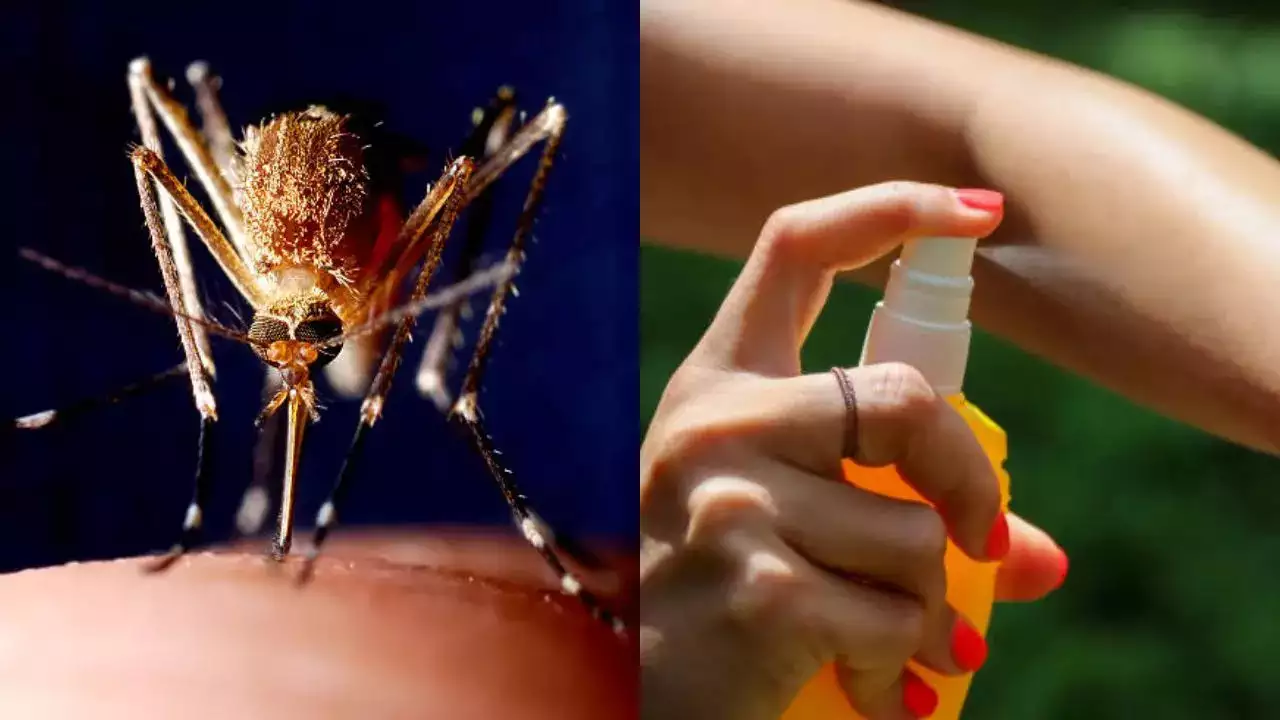
Japanese Encephalitis To Dengue: Why Are Mosquito-Borne Diseases On Rise In Delhi? (Image Credits: iStock)
Since the monsoon season, Delhi-NCR has been experiencing a constant rise in mosquito-borne diseases. Dengue, malaria, chikungunya, and now Japanese encephalitis have been making residents sick. According to recent data, over 4,000 cases have been reported in Delhi in 2024, with hotspots like the Najafgarh and South Delhi areas. Last year, Delhi reported 9,266 dengue cases and 19 fatalities, making this year slightly less severe but still concerning.
Delhi recorded a five-year high in Malaria and Chikungunya cases this year. As of November 9, the national capital has registered 728 malaria cases and 172 Chikungunya cases. The Municipal Corporation of Delhi's weekly report on mosquito-borne diseases stated that 9 infections were reported in the week leading up to November 9, 2024. In 2020, the city recorded 228 malaria cases, 167 cases in 2021, 263 cases in 2022 and 426 cases last year. Meanwhile, 111 Chikungunya cases were reported in 2020, 89 cases in 2022, 48 cases in 2022 and 65 cases last year.
The Shahdara South zone reported the highest number of Chikungunya cases, 87, while the City SP zone reported the highest number of malaria cases, 104.
Recently, Delhi has reported an isolated case of Japanese encephalitis (JE) where a 72-year-old man from West Delhi was admitted to the All India Institute of Medical Sciences (AIIMS) after experiencing severe chest pain. He was diagnosed with Japanese encephalitis following a blood test conducted on November 6. Authorities have assured the public that all necessary public health measures are in place as per the National Centre for Vector Borne Diseases Control (NCVBDC) guidelines.
According to the Integrated Disease Surveillance Programme, 1,548 cases of Japanese encephalitis have been reported across 24 states and Union Territories in 2024, with Assam accounting for 925 cases. JE remains a significant health concern, particularly in rural parts of Asia during the monsoon season.
But why are mosquito-borne diseases on the rise in Delhi-NCR? What preventive measures should one take to keep themselves safe? What are the symptoms one needs to watch out for?
Though most of the symptoms of these mosquito-borne diseases are similar, here is how to differentiate:
Symptoms Of Dengue
Fever, pain behind the eyes, muscle and joint pain, fatigue, nausea and vomiting, skin rash,
mild bleeding, low platelet count and dengue shock syndrome. In severe cases, dengue fever can progress to dengue shock syndrome, which is a sudden drop in blood pressure, leading to shock and organ failure. This is a medical emergency requiring immediate treatment.
Symptoms Of Malaria
Malaria is one of the most well-known mosquito-borne diseases. It is caused by the Plasmodium parasite and transmitted through the bite of an infected Anopheles mosquito. Symptoms of malaria include fever, chills, headache, and muscle aches, and if left untreated, it can lead to severe complications and even death.
Symptoms Of Chikungunya
Chikungunya is also transmitted by the Aedes mosquito, and its symptoms often resemble those of dengue. These include sudden onset of fever, joint pain, muscle pain, headache, nausea, fatigue, and rash. While chikungunya is rarely fatal, the joint pain can be severe and debilitating, lasting for months or even years. The disease is prevalent in tropical and subtropical regions, particularly during the rainy season.
Symptoms Of Japanese Encephalitis
The virus mainly affects the brain, with symptoms ranging from mild to severe. Common symptoms include: High fever, headache, vomiting, and neurological symptoms like confusion, seizures, and paralysis. While many infected people remain asymptomatic, severe cases can lead to long-term brain damage, neurological disabilities, or even death.
Why Are Mosquito-Borne Diseases On The Rise In Delhi?
As per research, key factors driving this rise include favourable breeding conditions for mosquitoes due to stagnant water in construction zones and uncovered water storage. Climate changes, such as irregular rainfall patterns and rising temperatures, further extend the breeding season of mosquitoes. Gaps in preventive measures like fumigation and community participation in eliminating breeding sites make the situation worse.
Despite intensified efforts by the Municipal Corporation of Delhi (MCD), including increased fogging, inspections, and fines for mosquito breeding, the cases are still on the rise. The MCD has issued over 1.14 lakh legal notices and levied substantial penalties to control breeding.
When Should You See A Doctor?
Dr Diksha Goyal, Senior Consultant - Internal Medicine, Marengo Asia Hospitals Gurugram said, "You should see a doctor when you have symptoms which may be persistent or become worse with time. These include high fever, extreme pain, difficulty breathing, chest pain, sudden changes in vision, or unexplained loss of weight. Go at once to the hospital if the signs point to a stroke heart attack. People with chronic diseases, like diabetes or hypertension, need to see a doctor every so often.
Get Latest News Live on Times Now along with Breaking News and Top Headlines from Health and around the world.


